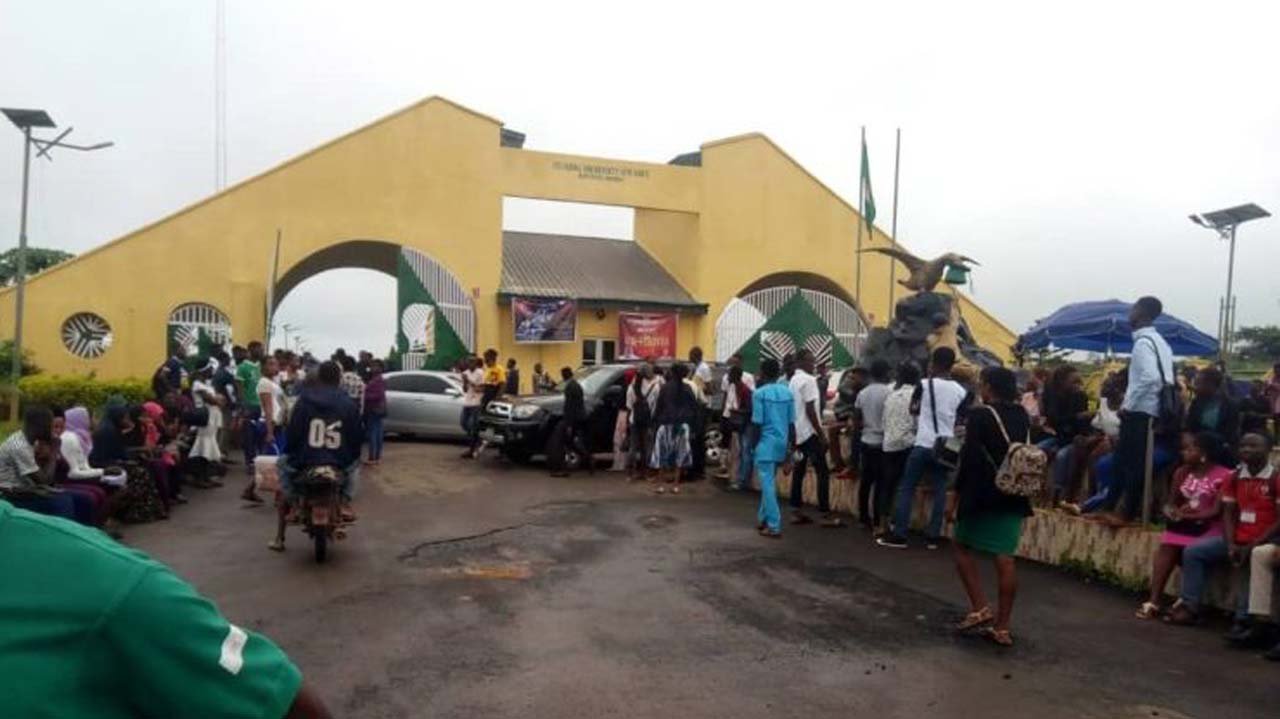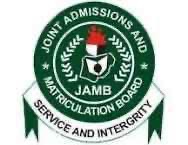Education
Insensitive SSANU Strike leaded to the death of our Student – FUOYE

The Federal University, Oye Ekiti, has blamed the death of a student of the institution, who was asthmatic, on Tuesday morning on the insensitivity of the striking members of the Senior Staff Association of Nigeria Universities, which led to the closure of the institution’s clinic.
FUOYE Vice Chancellor, Prof Abayomi Fasina, accused SSANU of feeding its national leadership with lies about the university, which led to the national leadership to allegedly direct the union in institutions in Ondo, Osun and Kwara to proceed to the university on Monday.
Fasina, who was represented by the university management team led by Deputy Vice-Chancellor (Administration), Prof. Tajudeen Opoola, said that consequent upon misinformation by the FUOYE SSANU Chairman, Oluwaseun Faleye, that he was under attack, the institution was invaded on Monday by hoodlums and shut down.
The VC said, “We lost a student this morning in FUOYE who had asthma because he could not be taken to our clinic because the facility is under lock and key. It is true that students are on holiday, but not all of them are living on campus. It would have been easier for the student to be rushed to our clinic for urgent treatment, but our university gate is locked.”
Fasina, who said FUOYE management team could observe that the administrative Block of Ekiti State University, Ado Ekiti was open, with people going about their activities and EKSU clinic functioning on Tuesday morning, wondered why EKSU SSANU allegedly incited hoodlums to invade FUOYE.
He said, “Total or comprehensive strike is not going on in EKSU. But the same leadership of EKSU SSANU went on air yesterday (Monday) to incite the public and even led some hoodlums to invade our school based on a false narrative he was fed with by Chairman FUOYE SSANU.
“Our own chairman was the one who gave false information to the National President (of SSANU). Since he gave the impression that he had been beaten and harassed. The National President allegedly directed that the leadership of their union in Ondo, Osun and Kwara should proceed to FUOYE to rescue the chairman. It is that impunity that the EKSU chairperson used. But we hope he won’t misuse the immunity”.
Fasina, who said the law would deal with the situation appropriately, said, “The university is not going to fold its arm and allow anybody in whatever name or allow any union to come and occupy our place. We have a way of dealing with such. This is Nigeria and nobody is above the law”.
The VC, who said that the SSANU chairman was “never been harassed or threatened by any security operative,” said, “The university is committed to continual maintenance of peace and security on our campuses”.
But the SSANU chairman, Faleye, who said SSANU duly notified the university of the seven-day warning strike, queried, “Is FUOYE the only federal university that is observing the seven-day warning strike? There are many schools that are under lock and key.”
Reacting to the allegation that the SSANU strike was responsible for the student’s death, Faleye said, “Before now, there was notice of strike. I have a memo that the university issued prior to the notice that we will be embarking on seven days’ warning strike that directed the students to vacate the hostels to avoid something of such.”
He denied the allegation that EKSU SSANU incited or led hoodlums to invade FUOYE, challenging the management to produce such evidence, alleging that rather, it was the university management that laid ambush for the SSANU monitoring team.
He said, “I think you are aware of the national directive of our union for all the branches to embark on a seven-day strike starting from March 18. Even before now, we have evidence of our correspondence with the management notifying them of the strike.
“They felt they could impose concessions on us, saying that we must give concessions and not follow the national directive. On Friday, they invited us to a meeting, asking us to give concessions. We told them no.
“They sent a written letter soliciting concessions to exempt the health centre, register others, but the circular from the national leadership of our union warned against granting such concession. We had privileged information that the Vice Chancellor was trying to use security to intimidate us.
“Between Wednesday and Friday last week, the DSS Director and the Commissioner of Police invited us, and we feel that this kind of intimidation is a national strike. Why would they invite us when it is a national strike? We felt we were not safe.
“On getting to the school gate we met armed Civil Defense officers. I was assaulted; it is the management that is using the security agencies to intimidate us.”
Education
NYSC member found dead in Bauchi lodge

A serving member of the National Youth Service Corps (NYSC) has been found dead in his lodge at Dambam Local Government Area of Bauchi State.
Security analyst, Zagazola Makama shared the news in a post on X on Monday.
He said the incident happened on Sunday morning.
The deceased identified as Mr. Nwokedi Chukwu Ebuka Gerald, 28, with state code number BA/25A/2069, was discovered by fellow Christian corps members while they were preparing for Sunday service.
Police said they received a report around 9:20 a.m. and visited the scene, after which the body was taken to the General Hospital in Dambam.
“A medical doctor confirmed him dead.His remains have since been moved to the Federal Medical Centre, Azare, for preservation.
Education
Student of Chukwuemeka Odumegwu Ojukwu University, Samuel Chinecherem Ezeh Breaks Guinness Records For Creating Longest Sleeves

A fashion designer claimed a world record by creating a show-stopping robe with 50-metre sleeves.
The longest sleeves on a garment is 51.20 metres (167.97 ft) and was achieved by Samuel Chinecherem Ezeh (Nigeria) in Onitsha, Anambra State, Nigeria.
That’s longer than the Statue of Liberty is high and longer than an Olympic-size swimming pool.
Samuel made this attempt to create a landmark piece in the field of fashion.
Samuel, 27, who works as a fashion designer and tailor while studying at Chukwuemeka Odumegwu Ojukwu University, had to overcome a lot to make the garment.
Education
JAMB INAUGURATES COMMITTEE TO REVIEW UNDERAGE CANDIDATES’ ADMISSION

The Joint Admissions and Matriculation Board (JAMB) has inaugurated a 23-member committee to determine the admission eligibility of 599 outstanding underage candidates who scored 320 and above in the 2025 Unified Tertiary Matriculation Examination (UTME), out of over 11,000 candidates in that category.
JAMB Registrar, Professor Is-haq Oloyede, emphasizes that scoring 320 is not an automatic ticket to university admission. He notes that each of the affected candidates must also attain at least 80 percent in both their school based assessments and post UTME examinations to be considered.
He further advised parents against cutting corners to secure admission for their underage children, warning that maturity and readiness remain key factors in tertiary education success.
The Registrar also adds that only those who meet all requirements at each stage of the rigorous screening process will be recommended for admission. The final list of successful candidates is expected to be released in September.
-

 Politics10 months ago
Politics10 months agoMexico’s new president causes concern just weeks before the US elections
-
Business10 months ago
US court acquits Air Peace boss, slams Mayfield $4000 fine
-

 Trending10 months ago
Trending10 months agoNYA demands release of ‘abducted’ Imo chairman, preaches good governance
-
Entertainment10 months ago
Bobrisky falls ill in police custody, rushed to hospital
-
Entertainment10 months ago
Bobrisky transferred from Immigration to FCID, spends night behind bars
-

 Politics10 months ago
Politics10 months agoRussia bans imports of agro-products from Kazakhstan after refusal to join BRICS
-

 Politics10 months ago
Politics10 months agoPutin invites 20 world leaders
-
Education12 months ago
GOVERNOR FUBARA APPOINTS COUNCIL MEMBERS FOR KEN SARO-WIWA POLYTECHNIC BORI




